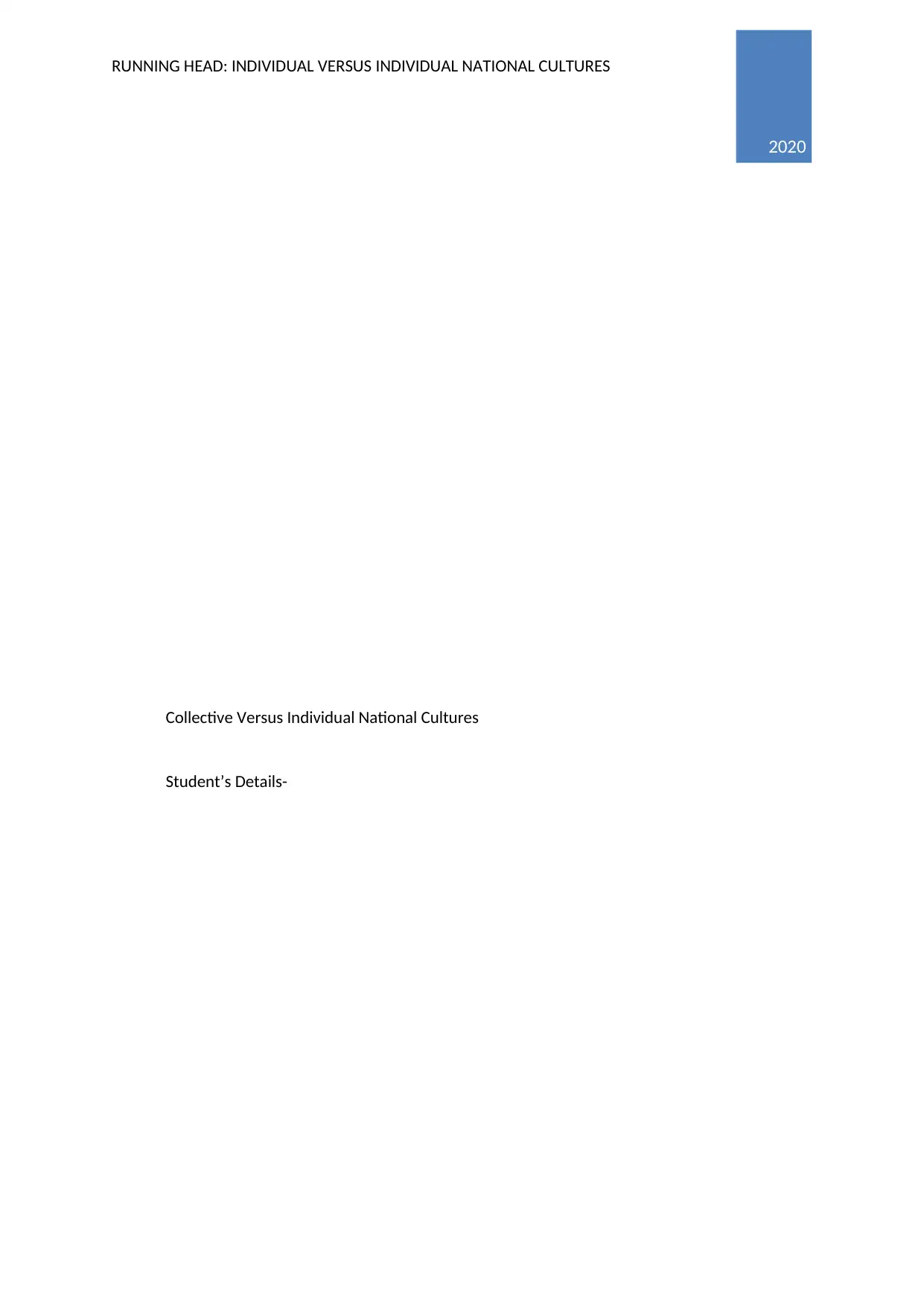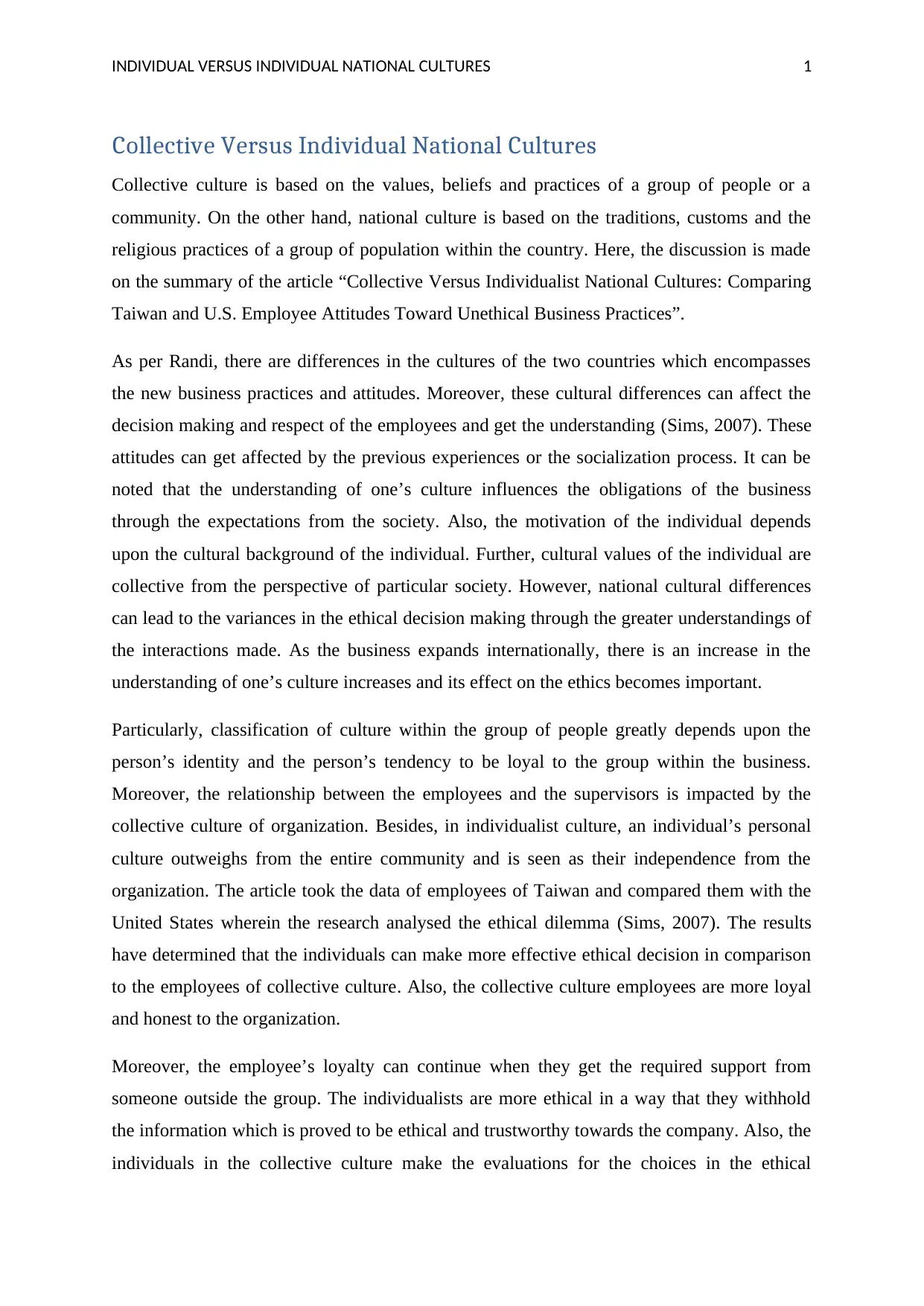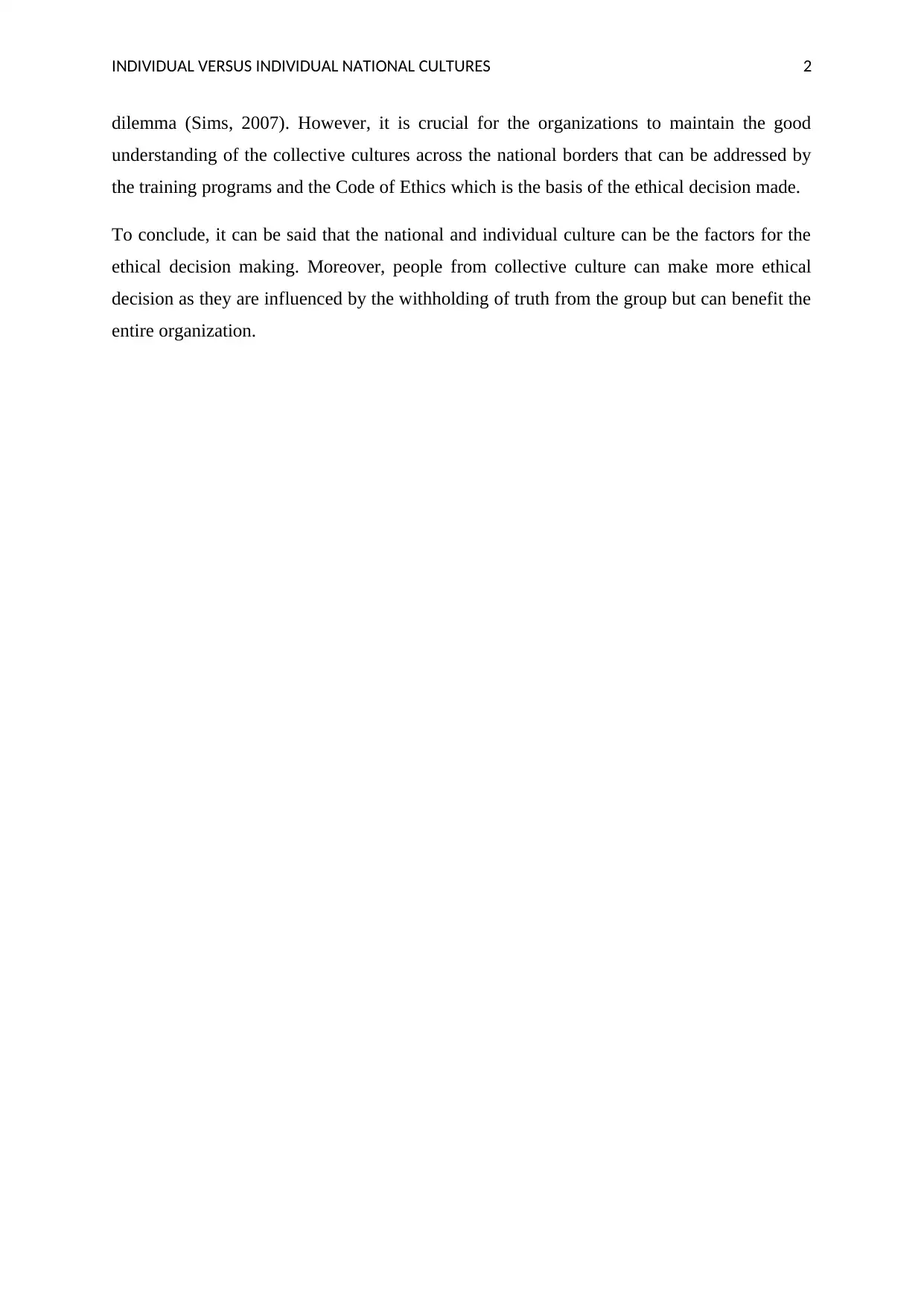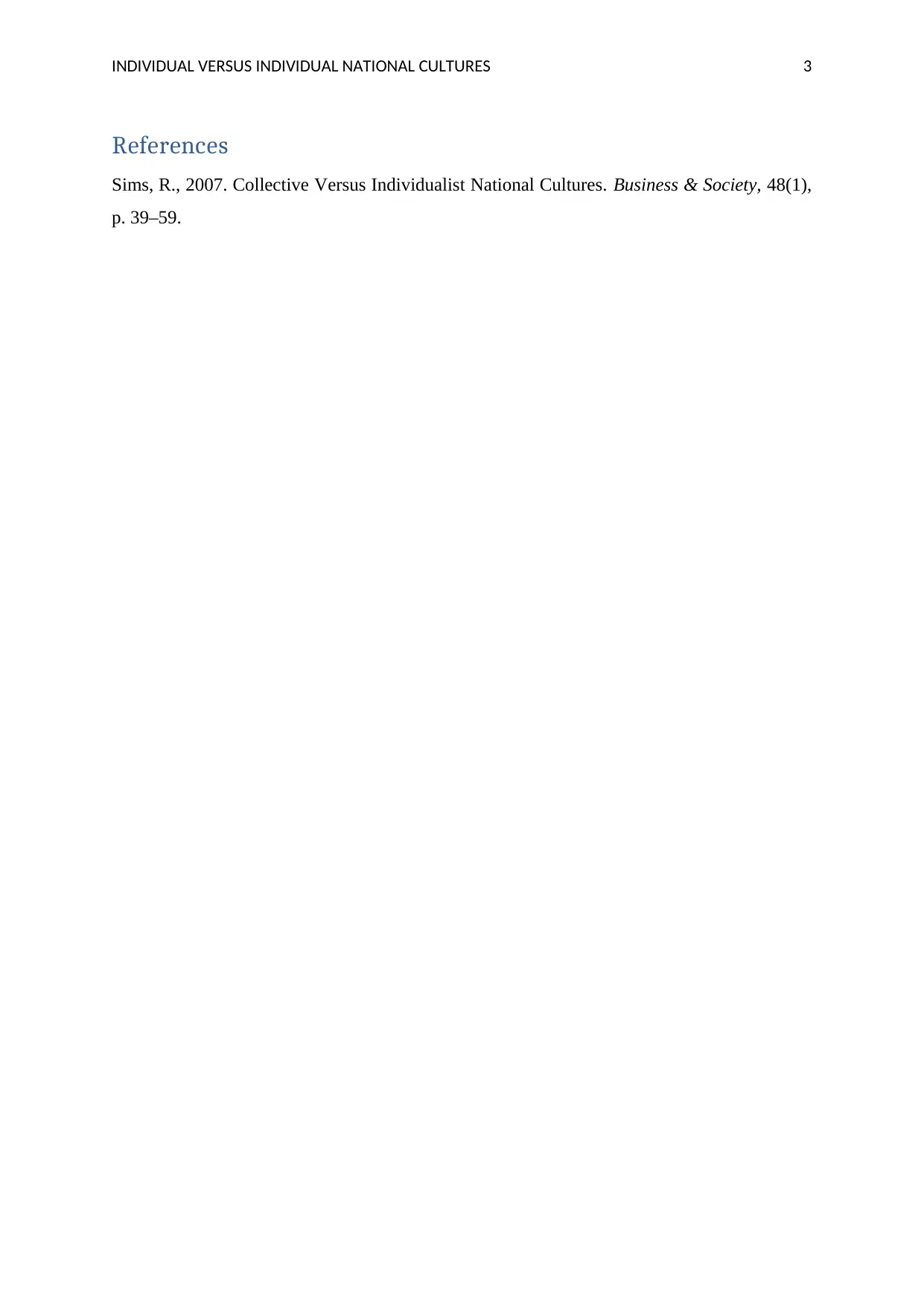Impact of National Culture on Business Ethics: A Comparative Analysis
VerifiedAdded on 2022/08/13
|4
|628
|29
Essay
AI Summary
This essay provides a summary and analysis of the article "Collective Versus Individualist National Cultures: Comparing Taiwan and U.S. Employee Attitudes Toward Unethical Business Practices." It discusses how cultural differences between countries like Taiwan and the United States influence employee attitudes toward business ethics, decision-making, and loyalty. The essay highlights that individuals from collectivist cultures tend to prioritize group harmony and may withhold information to benefit the organization, while those from individualistic cultures are more likely to make ethical decisions based on personal values. The importance of understanding cultural differences in a globalized business environment, and suggests training programs and codes of ethics to promote ethical decision-making across national borders is also emphasized. Desklib provides a platform for students to access similar essays and study resources.
1 out of 4











![[object Object]](/_next/static/media/star-bottom.7253800d.svg)